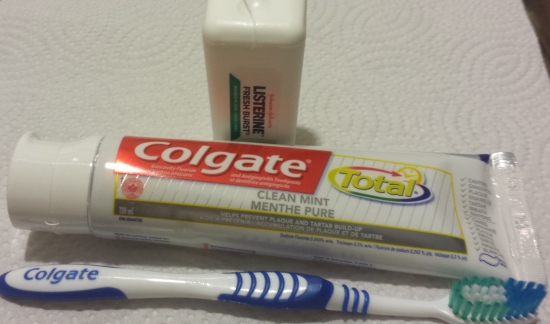
More than 30 million Americans have diabetes, the nation’s seventh-leading cause of death according to the American Diabetes Association. Uncontrolled, it can do severe damage to the heart, kidneys, eyes, and nerves. Periodontal disease is a lesser-known, though no less dangerous, effect of diabetes. This infection of the gums and jawbone causes tooth loss, makes chewing painful, and can produce dry mouth, infection, and painful ulcers. Poor oral health may lead to heart disease and damage other organs, so practicing oral hygiene - brushing, flossing, and getting regular dental checkups - is an investment in good oral health and in managing diabetes. Controlling blood glucose also has dual benefits. It helps control diabetes, and it’s important for preventing gum disease, a common occurrence in people with high glucose levels.
Warning signs
The appearance of dental problems is a warning sign that there’s a problem which could have serious repercussions for your overall health. If you’re experiencing swollen or bleeding gums, dark spots on your teeth, pain in your mouth or face, persistent bad breath, or loose teeth, seek dental treatment as soon as possible. Make sure your dentist is aware of your diabetes and of any oral problems that you’re experiencing so that they can be addressed within the larger context of your diabetes.
Good practices
People who are indifferent about oral health often believe that brushing their teeth is enough. In truth, good oral health is about much more. It begins with a healthy diet that does not promote tooth decay. This diet includes foods rich in fiber, such as fruit and vegetables; food that’s high in calcium, like cheese and milk; certain kinds of teas; foods that contain fluoride (poultry and some seafood); fresh mint leaves which is a natural anti-microbial agent as well as breath freshener that can be used in teas like in mint tea, added to water or in cooking.
Your dentist, doctor, and dietitian can help you put together a regular meal plan that emphasizes foods that protect your teeth and help maintain safe blood glucose levels. Brush your teeth at least twice a day using a fluoride toothpaste and be sure to floss at least once a day (taking care to use clean floss with each tooth). Remember that you should be visiting a dentist at least twice a year for cleanings and to identify any potential problems.
Trends and facts
Certain segments of the diabetes population are at especially high risk for periodontitis and should be particularly diligent about taking good care of their teeth and gums. Young adults with diabetes are twice as likely to develop periodontal problems. Adults over the age of 45 whose diabetes is inadequately controlled are approximately three times more likely to experience periodontitis than people without diabetes. Smoking is extremely dangerous to diabetics with consistently high glucose levels, constituting a risk or periodontal disease that’s more than four times higher than non-diabetics.
Dental procedures
Scaling and root planing is a process that can remove plaque buildup from underneath the gums and creates a surface that enables teeth to reattach to the gums. Flap surgery is a procedure in which gums are lifted, allowing tartar buildup to be removed and reducing the bacteria. Dental implants are surgically rooted in the patient’s jawbone and don’t shift, like dentures or bridgework, and aren’t subject to decay. Click here for information on the cost of dental implants.
Insurance
Diabetes is a disease that requires constant attention, including carefully monitoring diet and consistently practicing good dental habits. Regular brushing, flossing, and dental checkups can greatly increase your chances of avoiding periodontal disease and help you manage your diabetes. Think of it as an insurance policy, something you can do every day to prevent even more serious health problems that may arise as you get older.